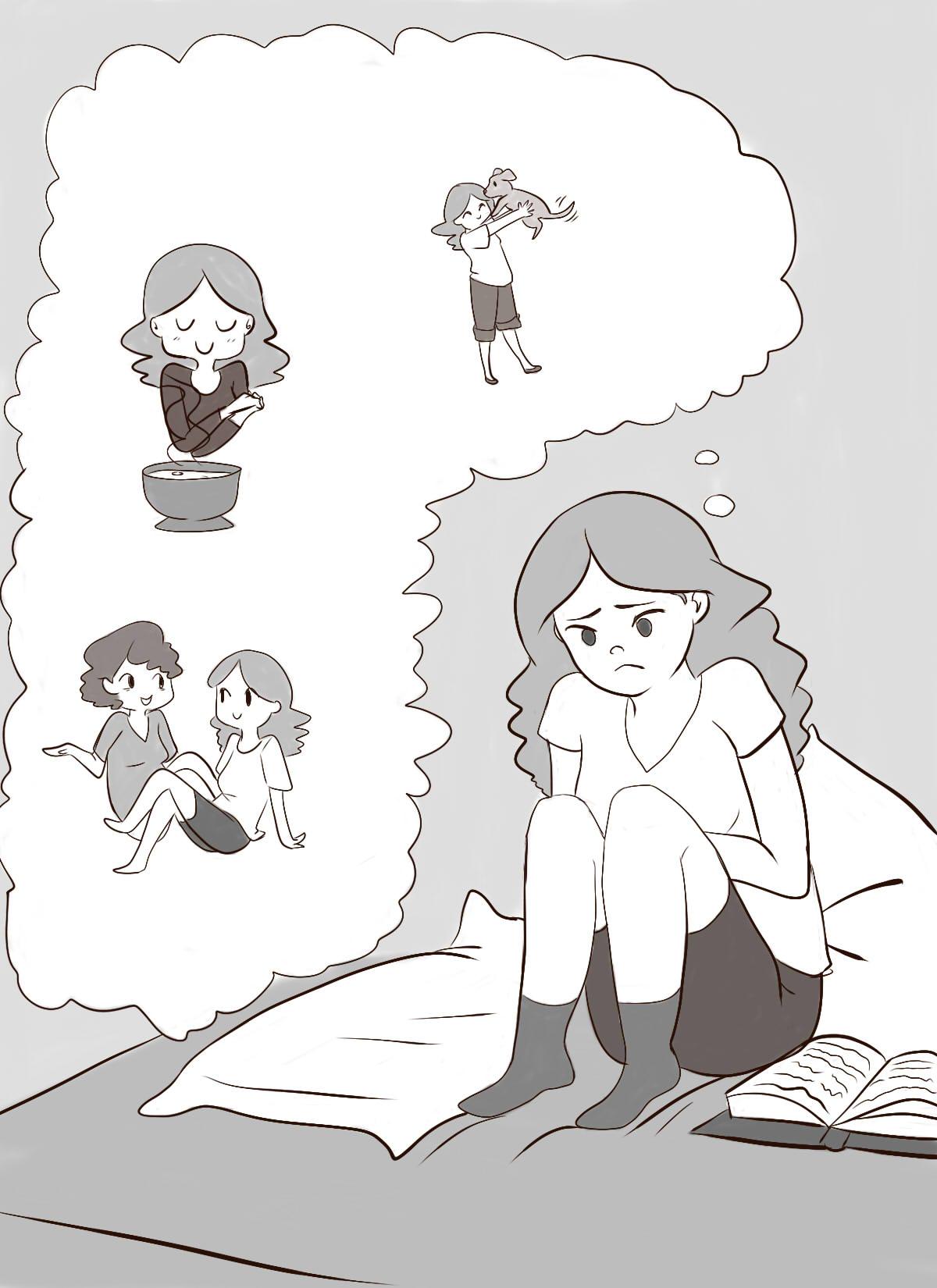
That first gut-wrenching glimpse of sodium drenched Ramen noodles or Hot Pockets in place of mom’s home cooked meals, the cramped space devoid of purrs or wagging tails and the lack of familiar faces. For many international and out-of-state students, even the local ones, studying and dorming at CSUN comes hand in hand with feeling homesick.
Adjusting to college is no easy task since it comes with responsibilities and pressures that often divert from the school workload. Assuming financial responsibility and finding a social niche might not have been familiar concerns when first arriving to campus. The little pleasures back home are often what students want to experience the most. Brandon Violette, 26, a senior studying screenwriting in Beijing found this nostalgic release through music.
“I would listen to artists who sang about being away from home, like Bob Dylan,” Violette said.
For some students, feeling homesick lasts only temporarily and as they begin to adjust to their updated routines and make new friends the feelings of depression and anxiety subside. However, this doesn’t come as easily for other students who struggle to adapt and make certain changes. Dr. Erica Ide, staff psychologist at the University Counseling Services, understands the seriousness homesickness can play in students’ everyday lives.
“I think it’s really important that if your homesickness is lasting for a very long period of time and becomes very severe that it can spark depression which is a graver issue and something that you should seek help for,” Ide said.
Eleanor Wolgast, 22, a senior majoring in art history, is familiar with that first budding feeling of homesickness after travelling abroad to Italy.
“The best way to get over homesickness is to get involved wherever you end up being, “ Wolgast said. “I got involved in stuff on campus. I met a lot of new people and I made a lot of friends which helped me forget that I was missing home.”
Technology and social media allow for a more intimate ability to connect with people back home.
“Just being able to have Skype, Facebook and email made the distance not so much,” Wolgast said. “After a while I could tell my dad ‘I’ll talk to you in two weeks’ or ‘I’ll talk to you in a month’ because I was so busy with all the activities.”
Students can also cope with homesickness not only by familiarizing themselves with their surroundings but also by bringing back a little piece of home with them. Whether it’s something tangible like a photo album, a favorite movie or even making some extra time to Skype with family, friends or significant others can make a big difference. Ide makes several suggestions as to how students can deal with these feelings of isolation.
“There’s a couple things that can be done behaviorally like setting up a time to chat with people at home so you have something to look forward to,” Ide said. “Bringing some of your home to your new environment. Getting active and getting involved. Staying busy and making new relationships whether that’s through study groups or through clubs and organizations or through getting to know your RA or getting connected in dorms.”
The International Student Association (ISA) at CSUN is an effective way to meet other students from all over the world who understand some of the difficulties that come with studying away from home. Hernaldo Requena, a sophomore majoring in film, appreciates the support of the ISA. Requena discussed the many benefits of joining the club in terms of dealing with homesickness.
“Joining the international club was our solution to the problem because there’s a lot of people like you who don’t have cars, who don’t know what to do at night, don’t know people or don’t have friends,” Requena said.
The rules for overcoming these hurdles and staying positive apply to everyone from those facing a 60-minute commute to a 7,000 mile flight home. The ISA welcomes everyone.
“What is done here is international people like me get to meet other cultures; we build friendships and tolerance with other people,” Requena said. “It helped me understand other cultures, make friends and have groups of people I can go to other places with.”